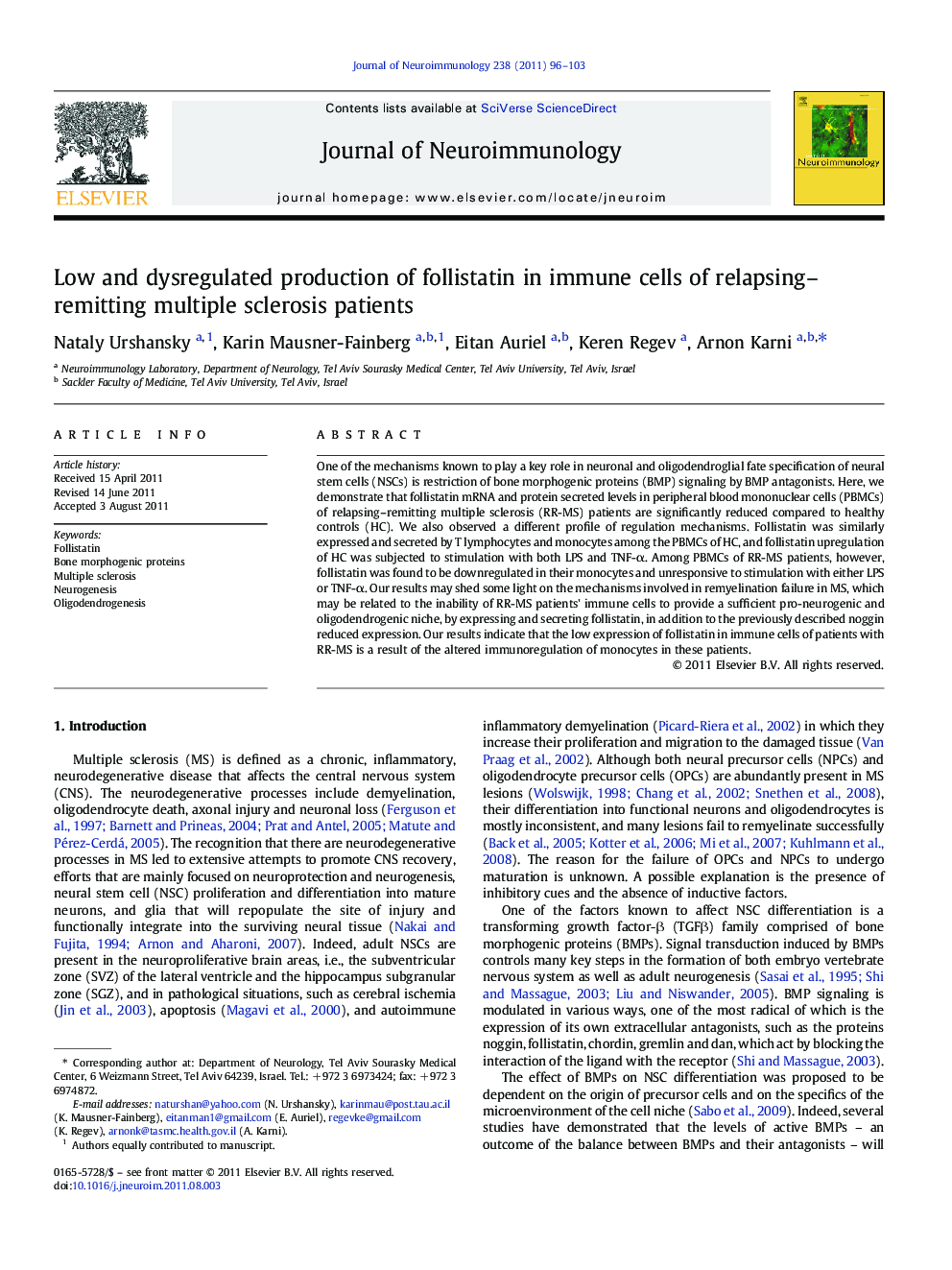| Article ID | Journal | Published Year | Pages | File Type |
|---|---|---|---|---|
| 6021072 | Journal of Neuroimmunology | 2011 | 8 Pages |
Abstract
One of the mechanisms known to play a key role in neuronal and oligodendroglial fate specification of neural stem cells (NSCs) is restriction of bone morphogenic proteins (BMP) signaling by BMP antagonists. Here, we demonstrate that follistatin mRNA and protein secreted levels in peripheral blood mononuclear cells (PBMCs) of relapsing-remitting multiple sclerosis (RR-MS) patients are significantly reduced compared to healthy controls (HC). We also observed a different profile of regulation mechanisms. Follistatin was similarly expressed and secreted by T lymphocytes and monocytes among the PBMCs of HC, and follistatin upregulation of HC was subjected to stimulation with both LPS and TNF-α. Among PBMCs of RR-MS patients, however, follistatin was found to be downregulated in their monocytes and unresponsive to stimulation with either LPS or TNF-α. Our results may shed some light on the mechanisms involved in remyelination failure in MS, which may be related to the inability of RR-MS patients' immune cells to provide a sufficient pro-neurogenic and oligodendrogenic niche, by expressing and secreting follistatin, in addition to the previously described noggin reduced expression. Our results indicate that the low expression of follistatin in immune cells of patients with RR-MS is a result of the altered immunoregulation of monocytes in these patients.
Related Topics
Life Sciences
Immunology and Microbiology
Immunology
Authors
Nataly Urshansky, Karin Mausner-Fainberg, Eitan Auriel, Keren Regev, Arnon Karni,
